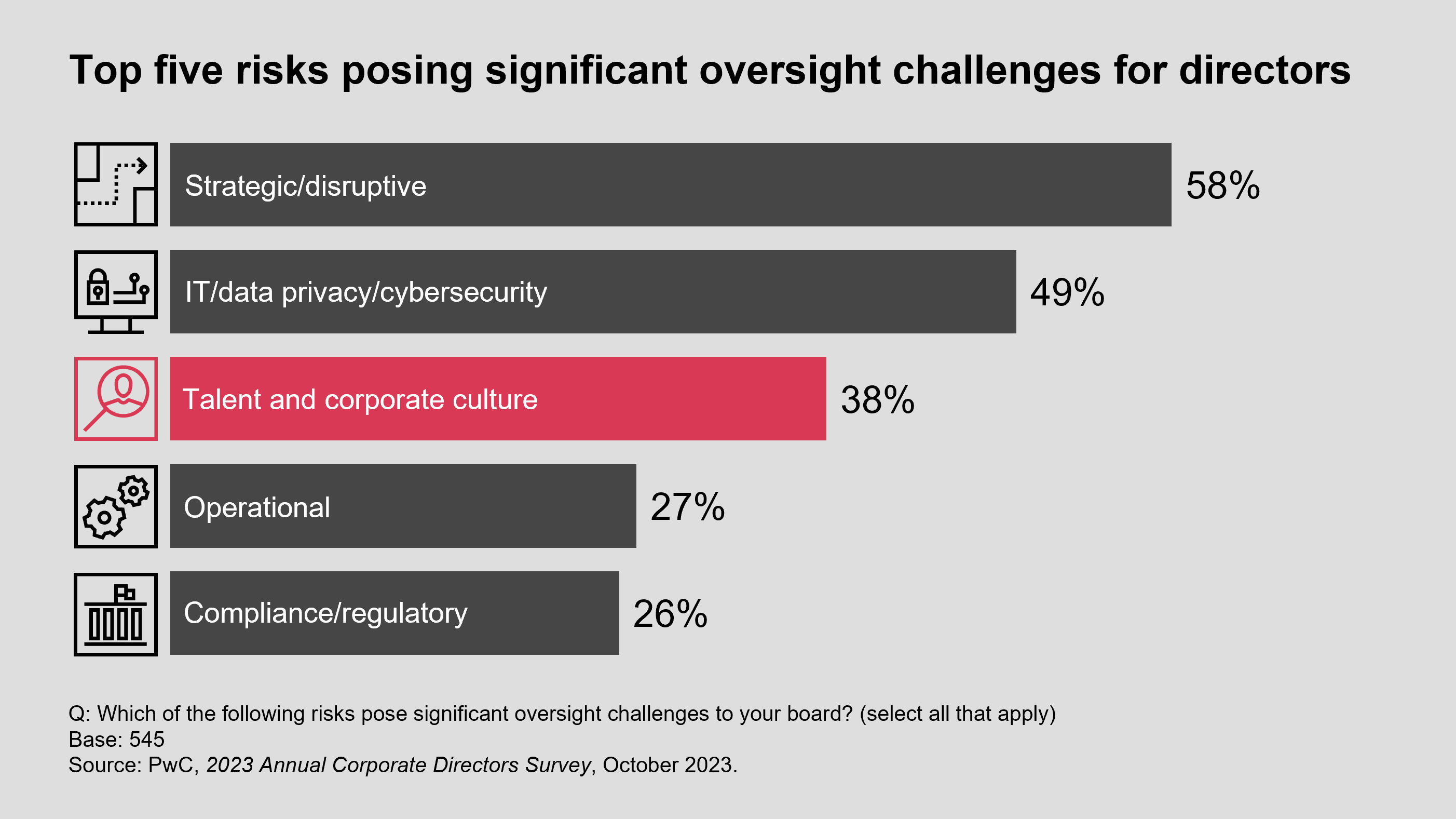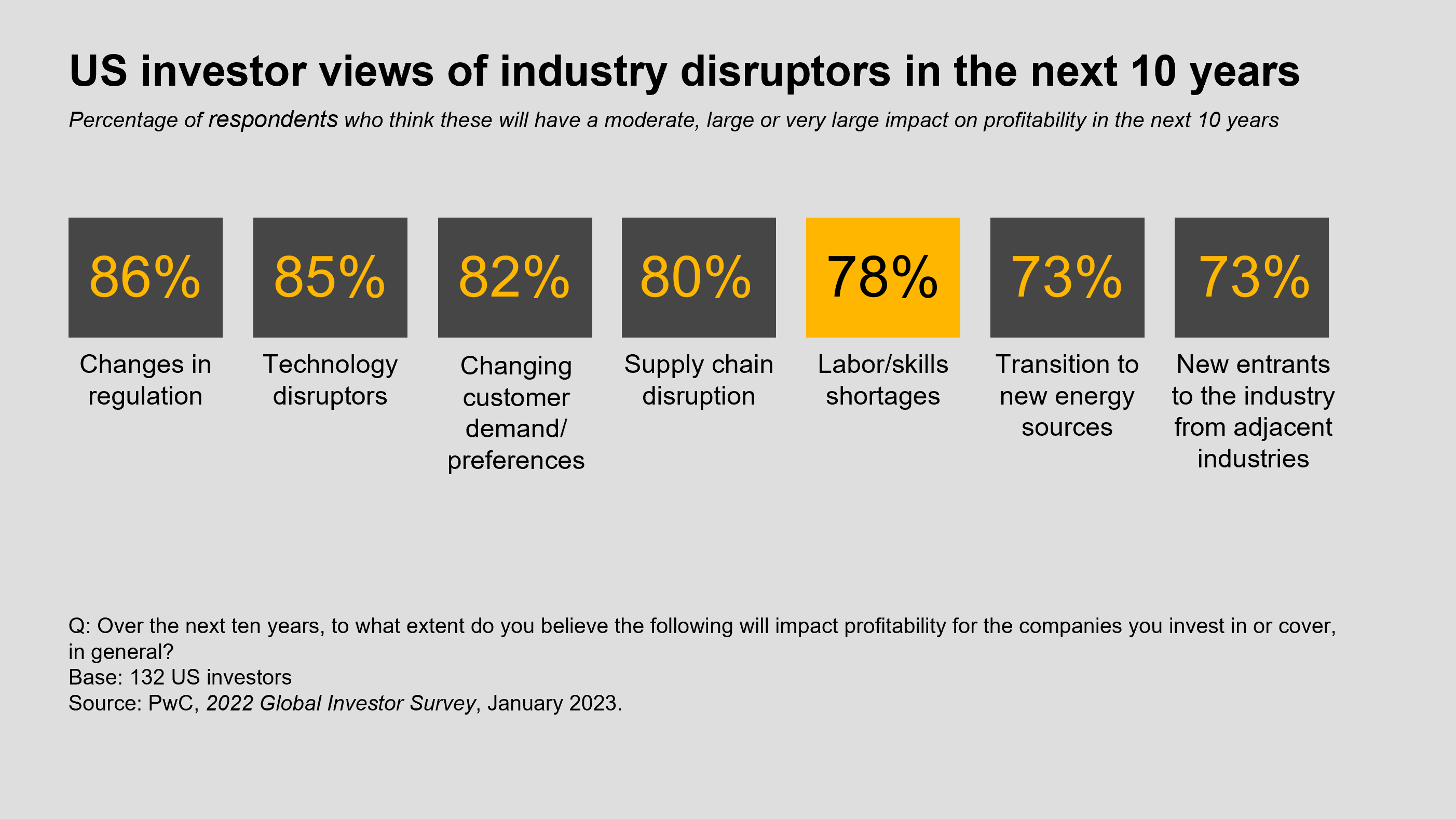{{item.title}}
{{item.text}}

{{item.text}}
Today’s increasingly unpredictable business environment can make management decisions more consequential. With mounting pressures on cost control, innovation and digital transformation in an uncertain economy, effective talent management is an organizational imperative. Boards should recognize their pivotal oversight role in achieving success.
Traditionally, boards have focused their talent management efforts on the C-suite, leaving oversight of the broader workforce to senior executives. Today, shifting employee preferences, stakeholder influences, societal changes, and rapid business and digital transformations necessitate a heightened board focus on talent management across all organizational levels.
Our latest report explores evolving talent management needs, emphasizing proactive board oversight to ensure responsiveness and transparency to stakeholders.
Overseeing a company’s top talent has long been a core responsibility of a corporate board. Directors are responsible for hiring and firing the CEO, evaluating top executives’ performance, approving leadership succession plans and supporting a pipeline of talent to execute company strategy. Effective board oversight can be essential.
The ability to attract, develop and retain top talent has become an increasingly critical business imperative. Even in the wake of the Great Resignation and the “quiet quitting” era, which has given way to a more stable labor market, increased competition for the “right” talent continues to top directors’ matters of concern. In our 2023 Annual Corporate Directors Survey, nearly 40% of corporate directors rated talent and corporate culture as a top risk posing significant oversight challenges for boards.
Institutional investors are paying closer attention to talent management as part of stakeholder engagement. Several of the largest have documented specific expectations as part of their engagement priorities, urging boards to become more involved in workforce planning and development. They are also pushing for more transparency about the board’s oversight of human capital management. Nearly 80% of investors in our 2022 Global Investor Survey view labor/skills shortages as a top industry disruptor over the coming decade.
Taking a more substantive role in talent management oversight can be challenging, requiring boards to strike a balance: acting strategically to support the company’s strength without stepping into the role of management. With this in mind, we offer a framework to help maintain healthy oversight at three different levels of the organization:
Director oversight of talent management may be more critical than ever. Companies are dealing with unprecedented business challenges and rapidly evolving technology, requiring constant adjustment of business operations and evolution of business models. These challenges will likely continue to have significant talent management implications, and boards should be proactive in overseeing companies’ policies and practices to support responsiveness and transparency to stakeholders.
{{item.text}}

{{item.text}}






